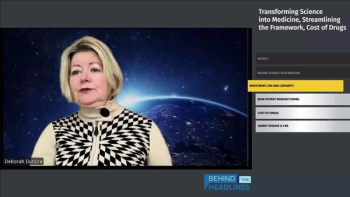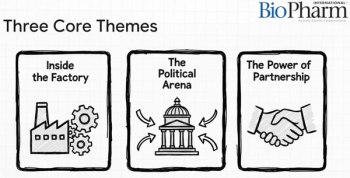In a move aimed at combating Shigella infections in low- and middle-income countries, GSK has granted Bharat Biotech International Limited (BBIL) the license to further develop and potentially commercialize its experimental vaccine candidate, altSonflex1-2-3 (1,2). The agreement supports ongoing efforts to address the leading bacterial cause of childhood diarrhea and highlights the growing urgency to tackle antimicrobial resistance associated with enteric pathogens.
The licensed vaccine leverages generalized modules for membrane antigens (GMMA) technology, a novel platform that uses outer membrane vesicles naturally released by bacteria to deliver antigens that stimulate immune responses. Developed by scientists within GSK’s Global Health team, GMMA’s low production cost and scalability make it a practical choice for low-resource settings, particularly as it often eliminates the need for adjuvants.
Promising clinical signals and a scalable pathway
Key Takeaways
·The GSK–Bharat Biotech partnership fast-tracks late-stage Shigella vaccine development to protect vulnerable populations and boost global health.
·Shigella is the top bacterial cause of diarrhea in children younger than five, particularly in low- and middle-income countries, posing a major health risk.
·A Shigella vaccine is critical to combat antibiotic resistance and reduce global illness and death from antimicrobial-resistant infections.
GSK’s vaccine candidate has so far shown encouraging results in early-stage clinical development. A Phase I trial and interim analyses from ongoing Phase II studies have confirmed that the candidate meets predefined immunogenicity benchmarks. The altSonflex1-2-3 formulation targets four major Shigella serotypes—S. sonnei and S. flexneri 1b, 2a, and 3a—chosen for their global prevalence and burden among children under five.
“With young children in lower-income countries disproportionately impacted by Shigella, the development of a low-cost vaccine is an important goal for global public health,” said Thomas Breuer, MD, chief global health officer at GSK (2). “With no licensed vaccines widely available, the development of our Shigella vaccine candidate which has demonstrated promising clinical trial results, fills us with immense pride. We are proud to collaborate with Bharat Biotech, whose expertise in developing and supplying vaccines for infectious diseases, especially as a trusted supplier to Gavi, the Vaccine Alliance, and UNICEF, positions them to further advance this important work.”
The collaboration will include GSK’s support for Phase III clinical trial design and BBIL’s pursuit of external funding. This partnership builds on a previous licensing agreement between the companies for RTS,S, the world’s first approved malaria vaccine (3).
Addressing a growing antimicrobial threat
The significance of this agreement extends beyond individual disease prevention. Shigellosis, caused by various Shigella species, including S. dysenteriae, S. flexneri, S. boydii, and S. sonnei, presents an acute infection of the large intestine characterized by diarrhea, fever, and abdominal pain (1). It poses a heightened risk in regions with limited access to sanitation and healthcare. Humans are the only natural hosts for these gram-negative, non-motile bacteria.
Compounding the public health challenge is the pathogen’s growing resistance to common antibiotics. A vaccine that can reduce disease incidence may also indirectly reduce antibiotic use, helping to limit the spread of antimicrobial resistance.
“The absence of a licensed vaccine, combined with the growing threat of antimicrobial resistance, underscores the urgency of developing effective, and affordable preventive solutions,” said Krishna Ella, PhD, executive chairman at Bharat Biotech. “As the market leader in vaccines for diarrheal infections—including rotavirus, typhoid, polio, non-typhoidal salmonella, cholera, and paratyphi—Bharat Biotech is proud to collaborate partner with GSK with the ambition to develop a Shigella vaccine candidate. This licensing agreement reflects our shared commitment to global health equity and positions us to advance altSonflex1-2-3 through late-stage development, and if successful, through regulatory pathways, and large-scale manufacturing.”
Advancing Vaccine Innovation for Global Use
The altSonflex1-2-3 candidate represents a broader ambition to use innovative platforms like GMMA to address global infectious diseases that disproportionately impact vulnerable populations (2). The choice of antigens aims to offer broad protection against geographically and temporally variable serotypes—a long-standing obstacle in Shigella vaccine design.
With no licensed vaccines currently available for shigellosis, this collaboration has the potential to fill a critical gap in preventive care. If successful, the vaccine could play a central role in global diarrheal disease reduction strategies and in curbing the rise of antibiotic resistance.
Shigella remains a priority pathogen on the global health agenda, particularly as patterns of resistance and serotype prevalence continue to evolve across low- and middle-income settings (2). This licensing and development partnership between GSK and Bharat Biotech marks a pivotal step toward bringing an affordable, scientifically advanced vaccine to the populations that need it most.
References
Mayo Clinic. Shigella Infection—Symptoms and Causes (accessed June 12, 2025).
GSK. GSK Licenses Shigella Vaccine Candidate to Bharat Biotech for Continued Development. Press Release. June 12, 2025.
World Health Organization. Malaria Vaccines (RTS,S and R21) (accessed June 12, 2025).





